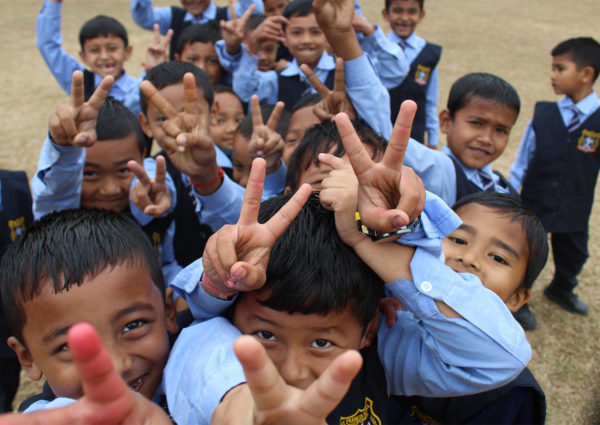There’s a saying that goes, “If you still remember something ten years after learning it, that’s the real and useful lesson life gave you.” The same might be said of fictional characters – if, years later, one quiet, ordinary person stands out in your memory among a sea of flashy superheroes and saviors, then something truly meaningful is going on.
Maybe it’s because you see yourself in them – kind, empathetic, unsure at times, and not wearing a cape. Just doing your best. That’s David Mailer from the Netflix sci-fi series Travelers.
Let’s be honest -TV shows and movies don’t exactly trip over themselves to portray social workers. But when they do, and when they do it right, it stays with you. And David Mailer, he’s unforgettable. He’s not a superhero, hacker, time-bender, or alien. He’s a social worker. A real one. And surprisingly, the heart of the entire series.
When Empathy Becomes a Superpower
David’s work is anything but glamorous. He supports people facing homelessness, addiction, trauma, and marginalization in a gritty American city. Among his clients is Marcy, a woman with significant intellectual and communication disabilities. Their bond is rooted in genuine care and professional ethics – two qualities as rare in TV dramas as unicorns with therapy degrees.
Then everything changes. Marcy becomes a “Traveler” – a host for a time-traveling operative with superhuman knowledge and skills. One day, she can barely speak; the next, she’s reciting nuclear physics. (Talk about a cognitive leap.)
Cue the drama: The agency funding her support sessions accuses David of inappropriate behavior. Because of course, when a client miraculously transforms overnight, someone has to be blamed. But Marcy – still holding onto the slivers of her past connection with David – defends him. Plot twist: she barely remembers their relationship, but emotionally, she feels it.
Now if that’s not an allegory for modern relationships, what is?
Love, Loss, and Lottery Tickets
In the middle of all this, David gets a girlfriend (because even social workers need a distraction), but Marcy isn’t done with him. She takes an enormous risk: life-threatening, even to regain her lost memories of David. Not the world-saving kind, not the genius-hacker kind. Just the memories of him. The quiet man who once saw her for who she truly was.
Their connection deepens, just in time for… you guessed it, heartbreak.
David dies on a mission, sacrificing himself to prevent a nuclear disaster. A huge, selfless act. He doesn’t go out in a blaze of glory – he goes out as he lived: doing the right thing.
Marcy is shattered. Her grief is deep, raw, and complicated. One of her colleagues fears she might take her own life. She doesn’t – but the pain lingers like a bruise that never quite fades.
The Quiet Hero We Need
David didn’t fight with weapons, but with empathy. He didn’t wear armor, but boundaries. He even shared the money he won in a lottery with those in need. (If that’s not sainthood, it’s at least the social work equivalent.)
He also struggled. He doubted himself. He dealt with trauma : life-threatening situations, loss, and PTSD. And he reminded us that social workers aren’t vending machines of solutions. They’re human. They need support, therapy, laughter, snacks and sometimes, just a break.
David was the kind of character who reminded us that kindness isn’t weakness, and that holding someone’s pain with care is its own kind of superpower.
AI vs. Empathy: The Future of Social Work?
As we race toward a future shaped by Artificial Intelligence, it’s worth asking: can AI replace the David Mailers of the world?
Will algorithms ever truly understand trauma? Can a chatbot walk someone through grief? Will AI ever hand over a tissue and hold space for silence?
Probably not. (Though if a robot does try, we’ll be sure to thank it politely.)
There’s a rebellion in simply being human-as Camus said, “The only way to deal with an unfree world is to become so absolutely free that your very existence is an act of rebellion.” David, without fanfare, lived that rebellion.
Final Thought: A Caution, and a Hope
We end with a sombre, powerful quote from Martin Niemöller – a chilling reminder of what happens when we ignore those around us:
“First they came for the Communists/
And I did not speak out
Because I was not a Communist
Then they came for the Socialists/
And I did not speak out Because I was not a Socialist
Then they came for the trade unionists/
And I did not speak out Because I was not a trade unionist
Then they came for the Jews/
And I did not speak out Because I was not a Jew
Then they came for me/ And there was no one left To speak out for me.”
Let’s not forget to speak up. Not just for the extraordinary, but for the quiet Davids of the world, who remind us – sometimes, just being kind is the most radical act of all.
Similar Posts
-
My Cry for Ukraine – M.K. George SJ
Cry for Ukraine, cry for the world. A brochure about Ukraine, a country known for its diverse yet be
-
Where is God during this Coronavirus? – M.K. George SJ
Corona virus has upset the whole world. I am a firm believer in God. However, I am as much a victim
-
Can we accept the differences? – The local fellow
Recently, I was in a discussion with one of my senior colleagues about the reopening of offices as p
-
Ever vanishing values – Sudha Nair
Trust is something which is so rare to find among humans today. As children we were told to respect
-
The call to change – three concrete ways – M.K. George SJ
I could think of three concrete ways of being a change in the context of today’s pandemic: Be a Good











Shyamala
superb quality of self sacrifice and empathy beautifully brought together in this power packed piece!
George
David fascinates…. yes for his emapthy, daring, self sacrifice…
you are right…
David s are the need of the hour🙏
Vidya
So true.. kindness itself is its own kind of superpower